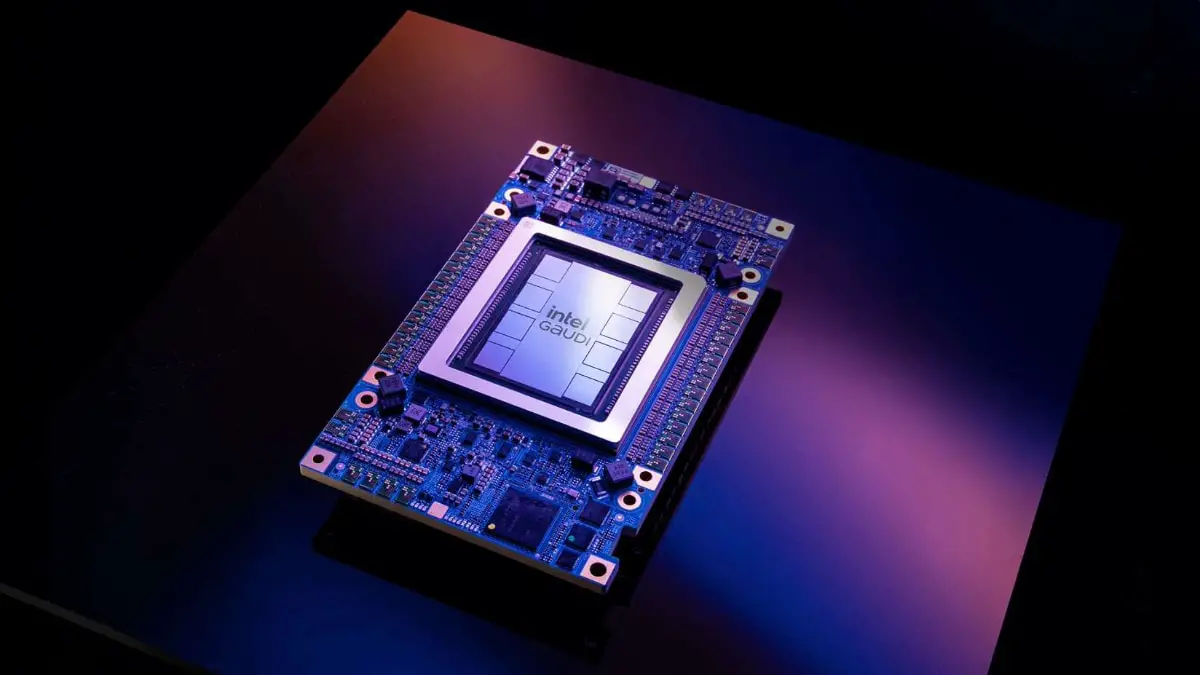
In a significant move to challenge Nvidia’s dominance in the AI hardware market, Intel has unveiled its latest Gaudi 3 AI accelerator chip. Announced at the Intel Vision 2024 event, the Gaudi 3 aims to deliver superior performance, energy efficiency, and cost-effectiveness compared to Nvidia’s leading GPUs, marking Intel’s strategic push to capture a larger share of the booming AI market.
Performance and Efficiency
Intel’s Gaudi 3 chip is touted to outperform Nvidia’s H100 in several key areas. According to Intel, the Gaudi 3 can train certain AI models up to 50% faster and perform inference tasks up to 30% more efficiently than Nvidia’s H200, the upgraded version of the H100 designed specifically for large language models (LLMs). This performance boost is expected to make Gaudi 3 a compelling option for enterprises looking for scalable and cost-effective AI solutions.
Technical Specifications
The Gaudi 3 chip features advanced networking capabilities, with each server comprising eight Gaudi 3 accelerators. These accelerators communicate via twenty-one 200 Gbps Ethernet connections, facilitating high-speed data transfer and efficient scaling from single-node setups to large clusters of up to 1,024 nodes. This architecture is designed to minimize networking costs and complexity, a common issue with other high-performance GPUs.
Strategic Partnerships and Ecosystem
Intel is not just focusing on hardware but also building a robust ecosystem around its AI accelerators. The company has partnered with industry leaders like Red Hat and SAP to create an open platform for enterprise AI. This initiative aims to integrate hardware and software solutions from multiple suppliers, offering businesses a seamless and optimized environment for deploying AI applications.
Market Impact and Future Prospects
Intel’s CEO, Pat Gelsinger, emphasized that the Gaudi 3 is part of a AI solutions to position Intel as a key player in the AI industry. Despite previous versions of Gaudi not achieving significant market penetration, Intel is optimistic about the new model’s potential to drive growth. The Gaudi 3’s competitive pricing and performance are expected to attract significant interest from companies investing in generative AI technologies.
Challenges Ahead
While the Gaudi 3 presents a strong alternative, challenging Nvidia’s entrenched position will not be easy. Nvidia’s H100 has been highly successful, significantly boosting the company’s revenue and market valuation. Furthermore, Nvidia is set to release its next-generation Blackwell platform later this year, which could further raise the competitive stakes.
Intel’s Gaudi 3 AI accelerator chip represents a bold step in the company’s efforts to challenge Nvidia’s dominance in the AI hardware market. With its enhanced performance, energy efficiency, and strategic industry partnerships, Gaudi 3 is poised to make a significant impact. However, Intel will need to navigate a competitive landscape as Nvidia continues to innovate and expand its own AI capabilities.


















